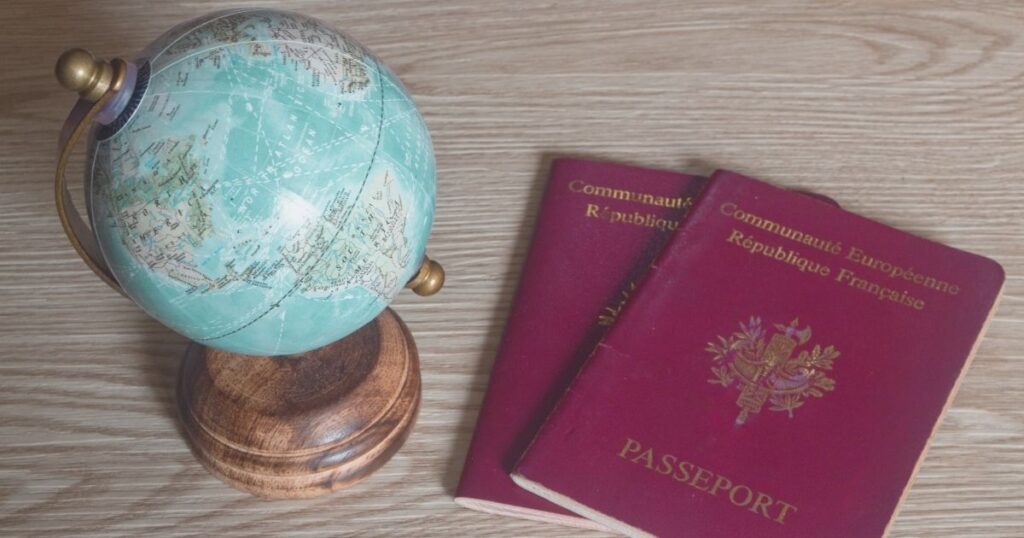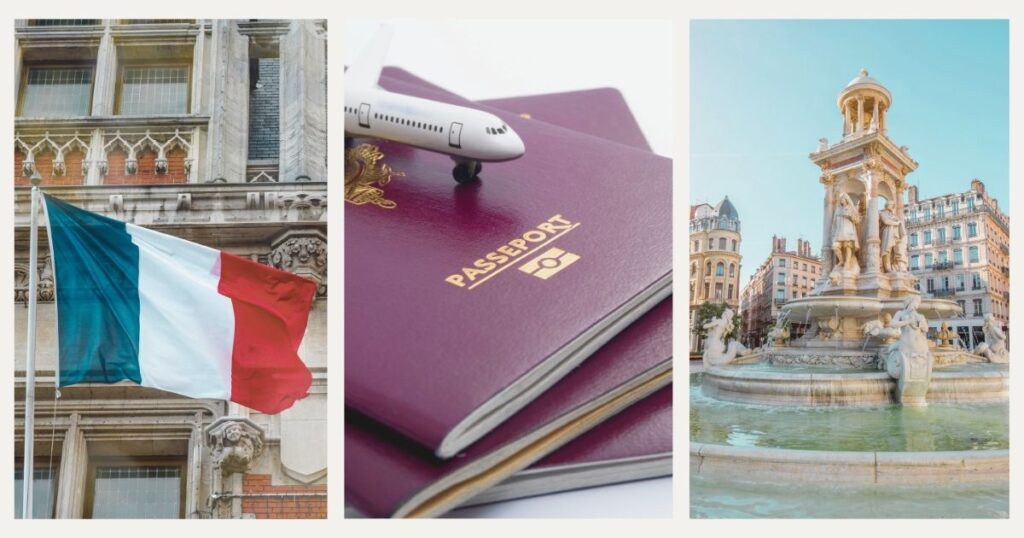Relocating to France as a digital nomad opens doors to exceptional healthcare and vibrant cultural experiences. However, accessing the renowned French healthcare system requires obtaining a social security number, known locally as a “numéro de sécurité sociale.”
This 15-digit identifier serves as your key to the French social protection system, covering healthcare reimbursements and other benefits. For digital nomads planning extended stays, understanding how to navigate this process is essential.
This guide will walk you through obtaining a social security number in France, covering the requirements and application procedures so you can focus on enjoying your French digital nomad experience while having access to one of the world’s best healthcare systems.
Understanding the French social security system

Before diving into the application process, it’s important to understand what a social security number actually is and why it matters for digital nomads seeking to establish themselves in this beautiful country.
What is a social security number in France?
A social security number in France (numéro de sécurité sociale or NIR) is a 15-digit identifier unique to each person. For foreigners, special codes are used for the department and commune of birth.
This number is essential for:
- Accessing healthcare services and reimbursements
- Registering with a primary care physician (médecin traitant)
- Receiving your Carte Vitale (health insurance card)
- Opening rights to family benefits if applicable
- Contributing to the retirement system
- Processing prescription medications at reduced rates
For digital nomads planning to stay in France for an extended period, obtaining this number should be a priority, as it significantly reduces out-of-pocket healthcare expenses and ensures you’re properly integrated into the French system.
🌟 Pro tip: even before receiving your official social security number, keep all medical receipts organized. Once your number is assigned, you can submit these for retroactive reimbursement, potentially saving substantial amounts on healthcare costs incurred during your application period.
Who is eligible for a French social security number?
Eligibility for a social security number in France depends primarily on your residency status and duration of stay. Generally, you must be legally residing in France for more than three months to qualify for registration in the healthcare system.
The main categories of eligible individuals include:
- Employees working for French companies
- Self-employed individuals registered in France
- Students enrolled in French educational institutions
- Long-term visa holders (over 3 months)
- EU/EEA citizens establishing residence in France
- Retirees establishing permanent residency
Digital nomads typically fall into one of two categories: those working remotely for non-French companies (requiring a long-stay visa) or those who establish self-employed status in France. Your pathway to obtaining a social security number in France will depend on which category you fall into.
💡 Did you know? The country has introduced special visa programs aimed at digital nomads, making it easier to establish legal residency and qualify for a social security number in France while maintaining your location-independent lifestyle. These initiatives reflect France’s growing recognition of the digital nomad movement.
Required documents to apply for a social security number in France

The documentation required varies slightly depending on your situation, but certain core documents are always needed. Being well-prepared will significantly speed up the process.
Essential documentation for all applicants
When applying for a social security number in France, prepare the following:
- Valid passport or national ID card
- Birth certificate with apostille and official translation into French
- Proof of address in France (rental agreement, utility bill)
- Visa or residence permit for non-EU nationals
- Proof of three months’ residence in France
- Recent passport-sized photos
- Banking information (RIB) from a French bank account
All foreign documents must be translated by a certified translator in France and be recent (less than 3 months old). The French administration is particularly strict about documentation standards, so attention to detail is crucial.
Nomada offers resources for digital nomads navigating administrative processes in popular European destinations, including document checklists and expert advice for dealing with French bureaucracy.
Additional documents based on your status
For employed individuals:
- Employment contract with a French company
- Recent pay stubs
- Employer’s SIRET number
For self-employed digital nomads:
- Proof of registration as an auto-entrepreneur
- SIRET number documentation
- Proof of professional activity in France
For non-working residents:
- Proof of financial resources
- Comprehensive private health insurance
🌟 Pro tip: request multiple copies of your birth certificate with apostille before coming to France. Having extras will save you time and money when applying for your social security number. Many digital nomads report needing their birth certificate for multiple procedures simultaneously.
Step-by-step application process

Navigating the application process requires patience and attention to detail. Understanding each step will help you avoid common pitfalls that many digital nomads encounter.
Step 1: establish legal residency
Before you can apply for a social security number in France, you must establish legal residency. For non-EU digital nomads, this typically means:
- Obtaining a long-stay visa or residence permit
- Finding accommodation and obtaining proof of address
- Opening a French bank account
EU citizens need to establish residence but don’t require a visa. However, they should still gather documentation proving their presence in France for at least three months.
Step 2: submit your application to CPAM
The primary agency processing applications is the Caisse Primaire d’Assurance Maladie (CPAM). Applications can be submitted:
- Online through the ameli.fr website
- By mail to your local CPAM office
- In person at a CPAM reception center
The application form is called “Demande d’ouverture des droits à l’assurance maladie.”
For digital nomads, the online application is often most convenient, though complex cases may benefit from an in-person appointment. Some CPAM offices in major cities have English-speaking staff or dedicated foreign service desks.
Step 3: maintain digital connectivity
Throughout the application process, maintaining reliable connectivity is essential for tracking your application and responding to requests for additional documentation.
A dependable eSIM from Holafly ensures you have consistent data access for managing your application online, receiving important emails, or accessing digital copies of your documents. Having reliable connectivity is particularly valuable when navigating the French administration system, which increasingly offers digital services for application tracking.
🌟 Pro tip: use your phone’s document scanner app to create high-quality digital copies of all your application materials. This makes it easier to respond quickly if CPAM requests additional information while processing your social security number application. Create a dedicated folder in your cloud storage specifically for French administrative documents.
Step 4: follow up on your application
The processing time typically ranges from 2 weeks to 3 months, depending on:
- Completeness of your application
- Your specific situation
- Current processing volumes at your local CPAM
- Whether additional verification is needed
During this waiting period:
- Check your application status through your ameli.fr account (if applied online)
- Respond promptly to any requests for additional information
- Keep copies of all communications with CPAM
- Consider a follow-up if more than 6 weeks pass without updates
Using your French social security number

Once you receive your number, several important next steps will help you maximize the benefits of being integrated into the French social protection system.
Obtaining your Carte Vitale
After your social security number is assigned, you’ll be eligible to receive your Carte Vitale—the physical health insurance card used throughout the French healthcare system.
To obtain your Carte Vitale:
- Wait for CPAM to send you a form requesting a photo
- Return the completed form with a recent passport-sized photo
- Receive your card by mail, typically within 2-3 weeks
Until you receive your Carte Vitale, you’ll need to use paper forms (feuilles de soins) for reimbursement. While this process is somewhat cumbersome, reimbursements are usually processed within 5-7 business days.
Registering with a primary care physician
A crucial step after receiving your social security number in France is selecting and registering with a primary care physician, known as a “médecin traitant.” This step:
- Increases your reimbursement rate for many services
- Establishes coordinated care
- Is required to access specialist care with full reimbursement
To register your chosen doctor, complete the “Déclaration de choix du médecin traitant” form and submit it to CPAM. Many doctors can complete this process electronically during your first visit once you have your Carte Vitale.
Understanding complementary insurance
While the basic French healthcare system covers approximately 70-80% of most medical costs once you have your social security number in France, many residents opt for complementary private insurance (mutuelle) to cover the remaining portion.
For digital nomads planning a long-term stay, a mutuelle can be worthwhile, especially for dental and optical care (which have lower basic reimbursement rates). These supplementary policies typically cost between €20-100 monthly depending on your coverage needs.
Final thoughts on obtaining a social security number in France
Securing a social security number in France represents a significant milestone in establishing your life as a digital nomad. While the process requires patience, the benefits—particularly access to excellent healthcare—make the effort worthwhile.
The French administration system values thoroughness over speed. Approaching the process with complete documentation and realistic timeline expectations will help ensure a smoother experience. The initial investment of time in obtaining your social security number pays dividends throughout your stay, providing peace of mind regarding healthcare access.
Looking to enhance your digital nomad experience in France? Explore our comprehensive guide to coworking spaces in Paris to find the perfect productive environment while settling into your new French lifestyle.
Your French adventure awaits with the security of proper healthcare access and Nomada by your side 👉
Frequently asked questions about social security numbers in France
The processing time typically ranges from 2 to 3 months from submission of a complete application. Factors affecting this timeline include your specific situation, the completeness of your documentation, and current processing volumes at your local CPAM office. During busy periods or if additional verification is needed, the process may take longer.
Yes, you can access healthcare while waiting, but you’ll need to pay upfront and keep all receipts. Once your number is assigned, you can submit these receipts to CPAM for retroactive reimbursement. For emergency care, hospitals will treat you regardless of your insurance status, though billing will be sorted out afterward.
Digital nomads can qualify if they have legal residency status for more than three months. This typically requires either a long-stay visa, registration as a self-employed person in France, or EU citizenship with established residence. Remote workers employed by non-French companies need to demonstrate legal residency through appropriate visas.
No, a social security number is not the same as the tax identification number (numéro fiscal de référence). These are separate identifiers used by different administrative systems. The social security number relates to healthcare and social benefits, while the tax ID is used for income declaration and tax payments.
No, each person needs their own social security number in France, including children and dependents. However, once you have your number, you can register qualifying family members as dependents under the French healthcare system if they also have legal residency status. The application process for family members requires proof of relationship.




